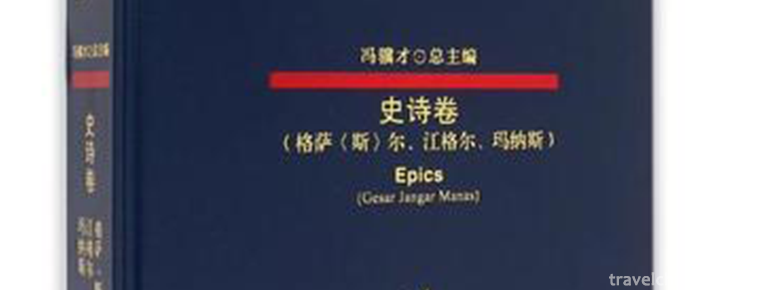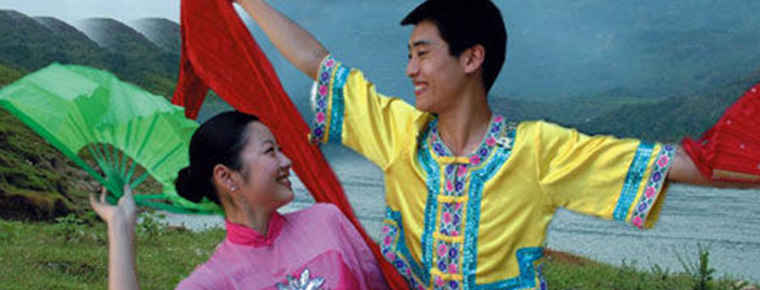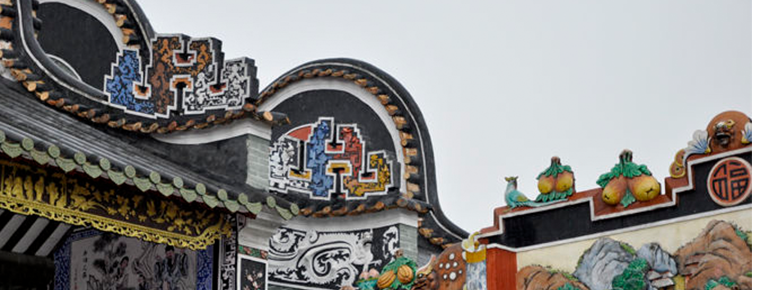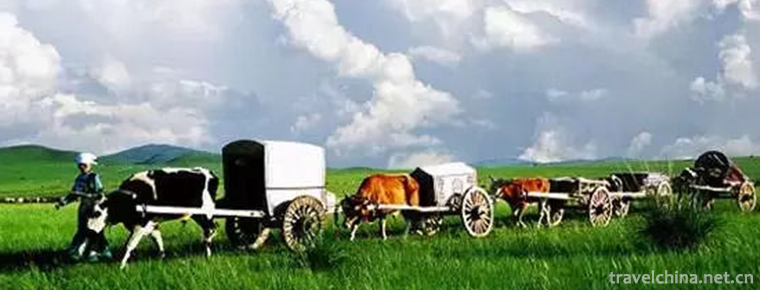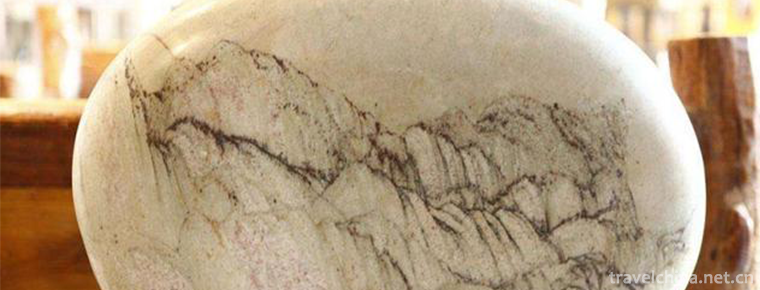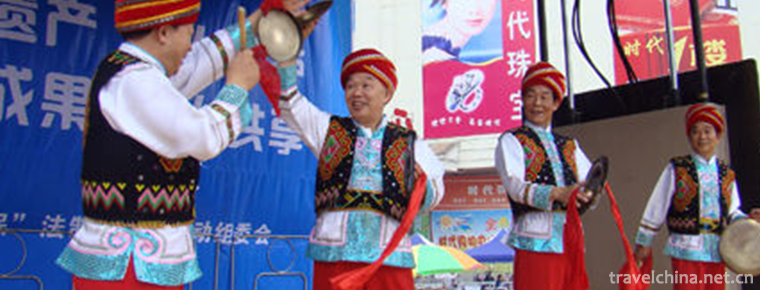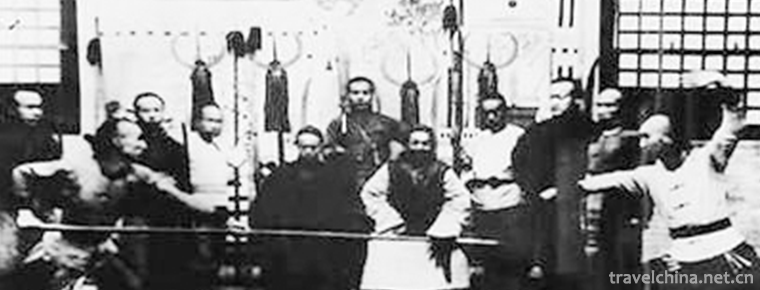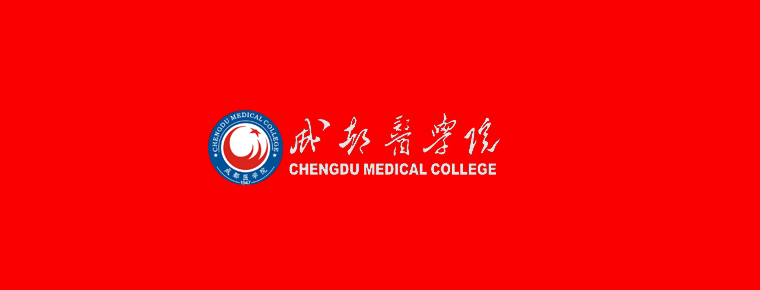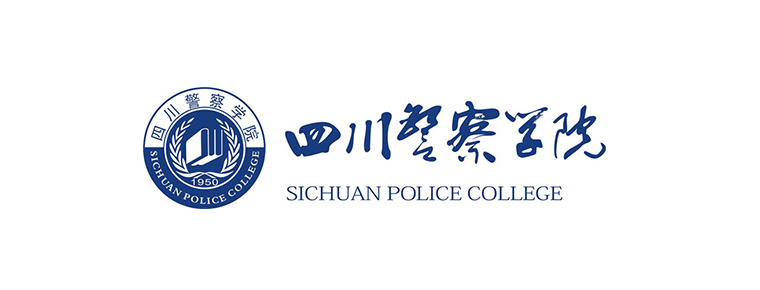The Legend of the Cloth Bag Monk
The Legend of the Cloth Bag Monk
From the end of Tang Dynasty to the Five Dynasties, the monk of Fenghua, Ningbo City, Zhejiang Province, named Tingzi, was an eminent monk of Hou Liang in the Five Dynasties. The Buddhist monk of the cloth bag is a master who comes from the folk and has won the hearts of the people. His authenticity is the most natural. According to legend, the life story of the cloth bag monk is a mystery. It is said that in the Tang Dynasty, there was a bundle of firewood floating on the Longxi River in Fenghua, Ningbo. There was a young child on the firewood, who was rescued by a compassionate heart. The child was seen with round head, big ears, clear eyebrows and beautiful eyes, smiling at people, and people could not help but take him home. Later, the child grew up and shaved to Yuelin Temple, where the incense was at its peak. After leaving home, he always carries a large cloth bag, known as "cloth bag monk".
It is hereditary that Maitreya Bodhisattva should be incarnated. He has a fat body, frowns and a big belly. He speaks indefinitely and sleeps everywhere. Maitreya Bodhisattva's Taoist Ground is located in Xuedou Mountain, one of the five famous Buddhist mountains in Xikou Scenic Area, Fenghua District, Ningbo City, Zhejiang Province, China.
Historical origin
From the end of Tang Dynasty to the Five Dynasties, Fenghua monk of Mingzhou, named Chang Tingzi, was an eminent monk of Hou Liang in the Five Dynasties. Legend has it that he is fat, smiling, uncertain in in speech, sleeping everywhere like a mad lame man; he often goes to the market with a bamboo stick and begs when he sees something, no matter what he is given, that is, to put a big cloth bag, he will never be satisfied with it; sometimes the thick people dump the things in the bag in front of the public and shout, "Look, see, laugh, then take back the bag." One day, sitting on the rock of Donglang of Yuelin Temple in Fenghua, Zhejiang Province, he said occasionally:
Maitreya, who is worth tens of billions of dollars, shows the world from time to time, and the world never knows it.
In the third year (917) of Hou Liang Zhenming, he died in Yuelin Temple. Before his death, he said "Death Snape" and called himself the incarnation of Maitreya. People suddenly realized that this was the manifestation of Maitreya. From the Northern Song Dynasty, they painted or sculpted his image and worshipped it in the Temple of Heavenly Kings, called "Big Belly Maitreya". Some of them also let him carry the "cloth bag", which is the image of Maitreya in Buddhist temples with open laughter and open belly and revealing chest.
The sack monk was replaced by the sack monk in India Maitreya. The Buddhist temple, the Temple of Heavenly Kings, faces pilgrims entering the door, sits outwardly with a smile and a bosom-piercing Maitreya, is Fenghua's cloth-bag monk.
Learning Buddhism in Honglangtan
Before the Buddhist monk became a monk, his name was Qihen, and he was already a Buddhist saint. As early as when I was studying in private schools, I began to drop out of school and meditate from an early age. Because he has a good memory, he can recite any book as soon as he reads it, which makes the teacher happy. He ran to this remarkable student's home and said to his father, Zhang Chongtian, "This child is unusual. He must be well trained and become a great weapon in the future. My knowledge can't satisfy him any more. You'd better invite another gentleman who knows astronomy and geography well and knows all over the world to teach him. Zhang Chongtian is in trouble. Although Changting Village is less than ten miles away from the county town, it was still a small village in the late Tang Dynasty, called Miaolin Eighteen Village. Zhang Chongtian is also Zhang's son-in-law. It's not easy to ask a high-level gentleman to be a tutor. The smart boy saw through his mind at a glance. He said to his father straightforwardly, "Don't worry, Papa. All the books I want to read are here." After that, I picked up a large number of sutras from my desk, such as the Diamond Sutra, the Lotus Sutra of the Magic Fa, the Amitabha Sutra, the View of the Infinite Life Sutra, the Sutra of Datuo on the Life of Maitreya Bodhisattva, the Sutra of Hua Yan, and so on. I saw Zhang Chongtian dazzling and wondered how these sutras were collected at this young age. Zhang Chongtian was afraid that this adoptive righteous son would become a monk when he read the scriptures. He quickly said, "Good son, these books are read by monks. They are not suitable for Nong Jie's little people to read. He will find Mr. Fang Haoge to teach Nong to read. Nong will definitely be the first prize and prime minister in the future." From then on, he laughed back and forth, patted his belly and said, "Daddy, people say that the prime minister has a good boat in his belly. Nong's son has such a big belly that he can accommodate all the rights and wrongs in the world. He can penetrate all the truth and falsehood in the world. Why does the prime minister have such atmosphere? To be a Buddha and Bodhisattva is right to be number one!" Zhang Chongtian listened to these words, with a solemn face, pulled his face to teach his son: "From now on, you listen, and then tell a kind of gossip, Nong will not call me daddy. My Zhang family has been handed down from generation to generation, relying solely on Nong's seed. "What's the difficulty of passing on seeds and succeeding generations?" From then on, he still said with a smile, "As long as Adam Nong builds a Buddhist hall for me, and lets me read the Scriptures quietly, I will have a full hall of Baonong's children and grandchildren, and there will be endless blessings for generations. If Nong wants his son to do something he doesn't want to do, I really have to leave home and work as a monk. Zhang Chongtian, however, had no choice but to build a Buddhist hall on the Bank of Honglangtan, his favorite playground, according to his son's request. In this way, he began to learn Buddhism in his own Buddhist hall, and learned from himself without a teacher. Within a few years, the classics of the eight Buddhist schools since Sui and Tang Dynasties were thoroughly understood. After becoming a monk, the legal name was Qihen, named Chang Tingzi. Changting people still regard him as a villager, and he often goes back to the study where he read classics to expound Zen. Later, he sat in Yuelin Temple and was said to be the incarnation of Maitreya Bodhisattva. In order to commemorate him, the Changting people renamed the Buddhist hall on the Bank of Honglangtan as Maitreya Hall and honored him as a righteous ancestor. They wrote his biography in Changting's Zhang's genealogy.
The Monastery of Yuelin
Since then, because of his cleverness, eagerness to learn, sincere treatment, rough and fine farm work can be afforded and put aside, people with daughters in a circle of dozens of miles want to recruit him as their son-in-law. Zhang Chongtian had a plan to start a family for his righteous son, so he chose a woman with good looks. It was hard to wait until he was eighteen years old. He wanted to knock on gongs and drums to carry the bride through the door and marry her. From then on, he was devoted to Buddha and never paid attention to the business of starting a family. At first, he tried to persuade his parents not to marry him. It was better for the whole family to chant Buddhist sutras and go to the Paradise World together. However, Zhang Chongtian and his wife couldn't listen to half a sentence. They were more influenced by Confucianism. They felt that they were not filial and had no future. The most important thing for a man is to pass on seeds and succeed generations. Otherwise, they would be sorry for their ancestors. Finally, he compromised because he promised his father when he asked him to build his own study: "What's the difficulty of passing on seeds and succeeding generations?" My grandchildren are full of blessings for generations to come. From this point on, I know that it's not helpful to talk more about the reasons why I haven't arrived. Besides, I can never break my promise. When he had a good idea, he smiled at his parents and said, "Grandpa and Grandma, you want me to be married, but the bride wants me to pick it out." "Better not. My dad believes in Nong. Nong wants the fairy from heaven. I'll bring Nong up as well." Zhang Chongtian and his wife are at ease. Since then, we have been paying close attention. He found that the owner of the tofu shop in the neighboring village had a little girl who liked to chant Buddha sutras and often followed her grandmother to Yuelin Temple to worship Buddha and burn incense. On a quiet trial, she had a strong will to be born. So I introduced the girl to my parents. When Zhang Chongtian and his wife inquired, they found that the girl was one in a hundred. She and her son were like a golden girl and a jade girl. They liked it so much that they immediately got married and set a date for marriage. On the evening of her marriage, the bride was unhappy. When the guests left the bride's room with only two people, she sat facing the wall and began to read the classics. From then on, I also sat on the other side, eyes to nose, nose to mouth, heart to heart, saying to the bride word by word: "Amitabha Buddha female Bodhisattva, do not worry about the difficulty of Buddha, as long as all one's heart to Brahma, I do monk Nong Buddha." The bride immediately opened her heart and said, "Well, I am not the same husband and wife as Nong Tong. Do as you say. Alain fled overnight and every temple and monastery was to be found." As he spoke, he got up to go. "Slow down," he quickly stopped at the door. "It's not the time yet. Our responsibilities have not been fulfilled yet." Then I talked about the three chapters of the covenant with my father. The bride was angry and wanted to snatch the door. From then on, he explained to the bride solemnly, "Don't be afraid, we'll be all right. Nong just shut his eyes and slept soundly. I wake up with five sons around me." From then on, he recited the Sutra aloud, motionless, as if in a fixed position. The bride missed the Sutra too, but she dozed off without saying a few words, and had to go to bed. In confusion, I heard five hammers tapping on the wooden mantle. When I woke up, it was five o'clock, and I didn't know where to go, but I felt like several fish swimming in my stomach. He shouted out in horror. When Zhang Chongtian and his wife heard the abnormality in the new house, they rushed to see their daughter-in-law sitting on the bed with a big belly, a note in her hand, and their son did not know where to go. Ask your daughter-in-law what's going on? The bride handed over the note and Zhang Chongtian read it carefully. On it, he wrote a poem: "Right and wrong hate the world more, and think carefully about what I can do. Tolerance of humiliation is necessary for a broad belly to be allowed to follow him happily. If a bosom friend has to depend on his part, even if he encounters an enemy, he will be in harmony. If you can do this, you will naturally get six Polos." Zhang Chong was so angry that he immediately summoned four relatives and eight relatives to find his son home. When they were about to start, they suddenly saw the new daughter-in-law kneeling down to her parents-in-law with five babies in her arms and said, "Daughter-in-law and your son are all Buddhist middlemen from now on. They are doomed to be"dependant on their confidants". Today, he has left home, and I am going to escape into the empty door. These five sons are descendants of Zhang's family. Our heavenly duty has been fulfilled. You don't have to spare no effort to find them, and it's useless to say goo " After that, I got up to the West and drifted away. When the people suddenly came to me, I had no idea where I was going.
By this time, he had become a monk at Yuelin Temple, which is separated from Changting Village by a river. His name was Qi, and he persevered. He was later known as the big belly Maitreya bag monk. At that time, Yuelin Temple was small in scale and its incense was flat. It was not until the cloth-bag monk came to Fujian to transport a large number of timber and built the hall and pavilion that Yuelin Temple became famous. Especially the Buddhist monk sitting on the rock of the East corridor of the temple made the people believe that Buddhist monk Qi was originally the incarnation of Maitreya Bodhisattva. Since then, Yuelin Temple has become a place for Maitreya Bodhisattva to follow suit. When Xuedou Monastery preached Buddhist scriptures, the Buddhist monk was still a little Shami, he was not qualified to preach Buddhist scriptures and spread laws. But he hoped that more people would share his joy with him. He often went to nearby monasteries and asked the monks to speak scriptures. When the abbots saw the deed, they were still a sami, and their words and deeds were not as solemn and solemn as the great monks. They thought that the child was playing on the head of Buddha and ignored him. Sometimes, they are told as jokes. This is not to be taken for granted, while continuing self-study and improvement, while looking for chances to speak. One day, he went to Xikou Snow Dou Mountain, 50 miles from Changting, and saw a temple behind Qianzhangyan Waterfall. There were many tourists on the mountain, but few pilgrims. He sat on a group of rocks outside the mountain gate and knocked on wooden fish and chanted sutras loudly. As soon as people traveling in the mountains and rivers heard the little monk chanting sutras so well, they all came to him. This is an opportunity to preach the magic of the Pure Land of the West and Tao Dao Tian, and to make all the believers laugh. Many people immediately went to the temple to burn incense and ritual Buddha. At that time, the name of the monastery was Waterfall Guanyin Yuan. The Buddhist temple in the monastery was cold and sparse. The monks who lived in the monastery saw pilgrims filling the temple with incense and incense. They were surprised to find a little Buddha who preached scriptures and preached Dharma outside the door. They invited him into the monastery and received him warmly. From then on, the cloth bag monk of Fenghua Yuelin Temple became a frequent visitor to Xuedou Temple. The Buddhist monks in the cloth sack regard Xuedou Temple as a place for preaching and spreading Buddhism. The inhabitants of the Waterfall Guanyin Academy also regarded the Buddhist monks as their masters. In order to let more followers hear the sound of Buddha, the monks laid boards on the four rocks where the Buddhist monks preached sutras, set up temporary lecture tables, let the Buddhist monks face the mountains and waterfalls, and talked freely to the followers of ten sides about the cause of the third generation and 84,000 ways of speaking. After forty years of age, the Buddhist monk met with Changtong Zen Master, the first ancestor of Kaishan in Xuedou Temple. During the reign of Tang Dashun (AD 892), Changtong Buddhist monk lived in Xuedou Temple and renovated and expanded the fallen Guanyin Temple, which was renamed Xuedou Temple. Changtong Zen Master is very fond of his profound knowledge, knowledge of astronomy and geography, deep roots of Buddha and pure meditation. Immediately, all the monks in the temple were summoned to the hall to invite the Buddhist monks in bags to give lectures on Buddhist scriptures. At that time, Buddhist precepts were so heavy that many people retreated in spite of difficulties. The Buddhist monk's theory that "everyone has a Buddha's heart" is that people who believe in Buddhism have no way to seek it, so long as they "have a clear mind and see nature" and sincerely convert to it. So more and more people listened, and the incense of Xuedou Temple became more and more vigorous. It is said that when the abbot of Xuedou Temple travels, he also invites the Buddhist monk to represent the abbot at Xuedou Temple. Before the new Xuedou Temple was built, the Buddhist monk of the cloth bag still had the relics of enlarging Buddhist scriptures at first. There were four pillars of stone in front of the right side of the Pearl forest, that is, the pillar that built the platform for the Buddhist monk of the cloth bag earlier, and later people called it "the platform for lecturing Buddhist scriptures".
Daihua Qiluoshan
Qiluo Mountain is located on the southeast coast of Fenghua Qiu Village, with Yuelinzhuang in the north and Xiangshan Port in the south. On the way back from Wuyi Mountain, the Buddhist monk came across Qiluo Mountain unexpectedly. Later, he landed at Tianhua Temple and Yuelinzhuang Village, and met Qiluo Mountain day and night, which gave rise to a special feeling.
Before returning to Fenghua Yuelin Monastery, the Buddhist monk once again came to Qiluo Mountain and said good-bye. See that mountain body proud and independent, extraordinary momentum, elegant demeanor! Suddenly, his mind flashed such an idea: "Why don't I become a mountain, stay here forever, always accompany the villagers to work at sunrise, sunset and rest, plough in the fields, go fishing in the sea."
As a result, the Buddhist monk read words in his mouth, while throwing the string of Buddha beads that he had worn for a long time to the top of Qiluo Mountain, which happened to be set in the huge rock at the top of the mountain. Suddenly, the whole Qiluoshan was loud and shining. After a while, the mountain changed its appearance and became the image of monks meditating.
Neighbouring villagers learned that the Buddhist monk had left the village and returned to Yuelinzhuang. They are like a few treasures, recalling the good deeds done by the owner of the big belly farm. Among the crowd, some people mentioned the unusual phenomenon that happened yesterday afternoon. They said they saw a long string of colorful things flying across the sky and falling on the top of Qiluo Mountain in the blink of an eye. Then I saw a circle of colorful lights on the top of the hill, shining brilliantly, and then I looked closely, but there was no trace. An elder listened and thought that this was Buddha light, which was rare in the world. Qiluoshan suddenly appears fantastic phenomenon, which is closely related to the owner of Daweizhuang who just left. He may be a great Bodhisattva incarnation since he has the power to manifest the sacred light of Buddha.
Listening to the elder's words, people could not help but shift their eyes to Qiluo Mountain in the south. "Wow! Qiluo Mountain is too much like Daweizhuang! They all shouted in surprise.
People are very familiar with Qiluo Mountain, only overnight efforts, the appearance changed greatly, into a bag monk meditation Buddha image. The hilltop was clearly his kind and peaceful face, even two eyebrows were clearly distinguishable. Under his eyebrows, two prominent rocks were arranged left and right, just like his wise eyes. The prominent hillside resembles his big belly, which has been exposed for many years. A little below the mountainside, there are two symmetrical remnants of hills, like his curled arms and legs. A small arc-shaped highland on the Shanxi side is like a large cloth bag he left on one side while he was meditating on Buddha.
Therefore, the saying that "the owner of Datuzhuang in Yuelinzhuang is the incarnation of Bodhisattva" became more and more popular. The villagers around Yuelinzhuang asked people to carve the stone statues of the owner of Datuzhuang and send them to the site of Lebailan where he had practiced. At the same time, he also shaped his golden body in Yuelinzhuang and called him "Yuelinzhuang Big Belly Bodhisattva". Local villagers often come here to worship and pray for plentiful grain every year and full seafood every season. Those business travelers who cross the sea always kneel down at Yuelinzhuang and burn incense to pray for the calm wind in the port of Xiangshan and ask Bodhisattva to bless themselves.
Left behind Yuelinzhuang
As the saying goes, "Every bird has a big forest." There are several monks in Tianhua Temple who are ill-conceived. They often rob beautiful women on the road outside the temple by hiding their abbots, causing the local people to report to the local government.
One day, a group of officers and soldiers who were ordered to come rushed toward Tianhua Temple. After entering the temple, the officer and soldier leaders ordered the abbot to call the monks of the whole temple together and let the victim women identify them. However, after a long time of careful identification, they could not find a "flower monk". It turned out that the lawless men ran away with oil on their feet as soon as they heard the news that the officers and soldiers were coming to the temple.
Of course, the officers and soldiers who had nothing to gain refused to stop. They burned Tianhua Temple with a fire.
After the disaster, the monks of Tianhua Temple, on the proposal of the cloth bag monk, wanted to worship the Yuelin Temple. The old abbot's face was difficult, and he raised an unsolvable question: although Tianhua Temple was destroyed in a torch, all the considerable paddy fields, dry land, mountains and forests and seashore of the temple were intact. Who should these industries handed down from generation to generation be entrusted to?
The Buddhist monk laughed and said, "Master, this is not a big problem. You might as well let me stay here. Then I will hand over the harvested property and rent to Yuelin Temple once a year. You may rest assured."
The Abbot was very happy when he heard that. Then he selected four or five honest little monks who had made friends with him and ordered them to say, "Today you are going to worship him as a teacher, stay with him, and be under his control to help him do things." After thinking for a moment, the abbot said, "All the monks and property of Tianhua Temple belong to the name of Yuelin Temple. You can call it Yuelinzhuang here."
After the abbot left, the cloth bag monk led the little monk, selected a number of old materials and rubble from the ruins of Tianhua Temple, built three houses with a decent image, and invited several intact Bodhisattva Kings into them. According to the old abbot's advice, he wrote three big words "Yuelinzhuang" on the middle door respectfully. Neighbouring villagers and pilgrims feel particularly happy when they hear that "Happy Monk" stays behind and becomes the solemn proprietor. On the day of Kaizhuang, people came from all directions to make the vacant land which had just been leveled out in front of the village house stand impassable. The wheat steamed buns for congratulations are piled up in a small hill. The Buddhist monks were busy sweating. The local people have added a new name for the cloth bag monk, "the owner of the big belly farm".
primary coverage
The cloth bag monk
The official history of the sack monk's deeds is very simple, but many stories circulated in Fenghua describe his wisdom, humor, kindness, optimism and tolerance.
The Buddhist monk of the cloth bag is a master who comes from the folk and has won the hearts of the people. His authenticity is the most natural. According to legend, the life story of the cloth bag monk is a mystery. It is said that in the Tang Dynasty, there was a bundle of firewood floating on the Longxi River in Fenghua, Ningbo. There was a young child on the firewood, who was rescued by a compassionate heart. The child was seen with round head, big ears, clear eyebrows and beautiful eyes, smiling at people, and people could not help but take him home. Later, the child grew up and shaved to Yuelin Temple, where the incense was at its peak. After leaving home, he always carries a large cloth bag, known as "cloth bag monk".
The Buddhist monk likes to work in the field, so he'd better bet with others for fun. There was a competition with people to transplant rice seedlings, who lost who invited dinner. Four peasants started and fell, and soon the field was green, and the cloth bag monk was about to lose, but he laughed and chanted aloud: "Knead the green seedlings in his hand and grow the field, then bow his head and see the sky in the water; six clean rice, back is originally forward."
It's very interesting for everyone to listen to this song. "Futian" refers to both good farmland and Buddhist farmland. The "water sky" is not only the sky of nature, but also the ideal world of Buddhism. "Six Roots" not only means that there are six plants in each row of transplanting seedlings, but also implies that the eyes, ears, nose, tongue, body and brain of the Buddhist Sutra fingers are homonymous with the Buddhist Tao. In the last sentence, "Back is originally forward", not only depicts the situation of transplanting seedlings, but also contains the wisdom and dialectical philosophy of Buddhism. When people ponder, the cloth bag monk uses his magic power and happily transplants the seedlings.
The Buddhist monk, with his chivalrous spirit of three points, has a plain heart for human existence. Before his death, he said four sentences: "Maitreya, incarnated in tens of billions of dollars; people are always present, but people are not aware of it." That is to say, to sit on top of the bluestone and die. Later generations suddenly realized that the cloth bag monk was the incarnation of Maitreya Buddha.
The cloth-bag monk, incarnated by Maitreya, often persuaded people to forget their troubles and to be broad-minded. He often walked with a quinoa stick and scattered his feet, which was in accordance with the meaning of the Buddhist law of "all laws are empty".
Later generations worshipped the respectable master and wrote an antithetical couplet: "Big belly can tolerate things that are difficult to tolerate in the world; Laugh often, laugh at people who are ridiculous in the world." This well-known sentence praises the generosity of the cloth bag monk and his tolerance for people and affairs, but it seems that he did not realize Buddha's broad-minded mind.
Ask the world who has not done ridiculous things, who can say that they are not ridiculous people. The generous Buddha, who laughed at ridiculous things for a long time, did not treat all living beings kindly with compassion, which was beyond our expectation.
Drifting County River
According to official history, the cloth bag monk clan is unknown and does not know where it came from. According to Fenghua legend, the cloth bag monk drifted from Fenghua County River to adopt Changting villagers Zhang Chongtian and his wife Dou Shi, named "from here", and then deduced as "from here".
Fenghua has three major rivers: Zhanjiang, Xianjiang and Dongjiang. Among them, the county river passes through the city and gets its name. The County River originated from Dongli First Jianshan, Fenghua Dayan Town. Its main stream is 77 kilometers long, and it goes to sea from Yongjiang River. The section that flows through the county town is called Longjin, which is said to be the residence of Jiuziaoya, the Dragon King of the East China Sea. Every year, Ao Ya wants to make waves and floods, saying that he wants to visit his father in the East China Sea by taking advantage of the floods. This autumn was no exception. The typhoon crossing water rose, and a board (some say a bundle of firewood) floated in the water. A child lay on the board. This child is the famous cloth bag monk in the future.
In the north of Fenghua City, there is a village called Changting on the West Bank of the county. There is a family in the village. The man's name is Zhang Chongtian and his wife is Dou Shi, who works in agriculture for a living. Husband and wife love each other, but they have no children on their knees. Zhang Chongtian had breakfast that day and was working in the field. Suddenly he heard a roar on the stream, which was like a dragon, rushing down. Among the white waves, a board was shaking, and a naked child lay on it, at any moment in danger of extinction. When Zhang Chongtian saw this scene, he moved his sympathy and found a bamboo pole nearby. He pulled the board to his side, took the child and looked at it. He had a round head and big ears, and was dignified in appearance. He laughed at his Mickey and felt his love at once. Hold back
Yuelin shaving
Yuelin Temple, built in the second year of Datong, Nanliang (536), was formerly called Chongfu Temple. In the second year of Xuanzong's middle school in the Tang Dynasty (848), the site of the temple moved from the west of Longjin to the east of Longjin. It was renamed Yuelin Temple. It was named after the three mountains and jungles behind it, and then deduced into Yuelin Temple. The name of the temple is still in use today.
Zhang Chongtian and his wife believe in Buddhism. From childhood on, he often accompanied his parents to worship Buddha at Yuelin Temple, which is opposite to Changting Village. A little longer, and often with small partners in the village to play in the temple. The tall buildings, magnificent Buddhist halls, lofty Buddhist statues and solemn Buddhist activities of Yuelin Temple have exerted a strong attraction to this. For a long time, with the influence of the Buddhist religion, he finally put forward the idea of secular monks to his parents.
In the late Tang Dynasty, political corruption, hegemony, frequent wars, social unrest. In this situation, many people want to find a quiet place to live and avoid the scourge of war. Therefore, Buddhism was flourishing at that time and becoming a monk became a fashion. Zhang Chongtian and his wife had believed in Buddhism, and they had no objection to his son's conversion to Buddhism. So, at the age of 17, he left his family and stepped into Buddhism.
When the abbot saw that the deed was round-headed and big-eared, with a good face and a pious young age, he readily accepted it and said, "Good!" Good! With the addition of this Sandman to the temple, incense will surely flourish! ___________ Next, the abbot himself shaved the silk and put on his robe. He added the word "Shi" before his name and gave the code "Shi Qi" to the abbot.
Abbot's wisdom knows pearls. The Buddhist monk became a monk in Yuelin Temple and was quiet in Yuelin Temple. He did many things for Yuelin Temple. After that, he was designated as the incarnation of Maitreya, replacing Indian Maitreya with his image. Yuelin Temple is famous for its reputation as Maitreya Temple.
Cloth bag fun
When he became a monk, he carried a cloth bag all day and traveled all over the country. Someone asked him, "Does Master have a code?" "I have a bag, empty and unhindered; spread it all over ten directions, and be at ease with the times." Therefore, people all over the world call him "buddhist monk of cloth bags".
The cloth bag monk is very magical.
First, it is vast and profound. It doesn't look big, but no matter how many things are put in, it's never full. Even the large pieces of wood he raised for the expansion of the monastery in Fujian can be packed in bags.
Second, it has the special effect of reviving the dead and turning the bad into fresh. Someone threw the dead fish into his cloth bag. He was not angry, but still smiled and accepted it. Back to the river, pour into the water, fish even shake their heads and tails, swimming into the stream. Someone poured the steamed food into his cloth bag, and after a while, it was fresh and delicious. He couldn't finish his own meal. He invited the children to eat as much as they could. The children ate with relish, while the cloth-bag monk sat on one side and laughed heartily. So many children like to play with him. The "Eighteen Children's Opera Bags" carved on the rocks in front of Lingyin Temple in Hangzhou are based on this legend.
Thirdly, this cloth bag can never be destroyed. A local scoundrel, accustomed to provoking trouble and making fun of others, thought that the Buddhist monk was honest and deceptive, took his bag and set it on fire. Strangely enough, the next day, the cloth bag monk was still carrying the cloth bag, coming and going as usual. The scoundrel thought that the bag must have been rebuilt and seized it and burned it. Again and again, the cloth bag monks tolerated it with great generosity, but when the rogue grabbed the cloth bag for the fourth time, he could not lift the empty cloth bag with all his strength.
So far, the scoundrel knew that the Buddhist monk was not a mortal, so he worshipped at his feet and begged for forgiveness. The Buddhist monk pointed out, "Good is rewarded with good, evil is rewarded with evil, not without reporting, the time has not arrived, when the time arrives, everything will be rewarded." From then on, the scoundrel changed from evil to good and never dared to do evil again.
Document record
Biographies of the Cloth-bag Monks in Buddha's Tongji
Although the cloth bag monks in Volume 42 of Zhipan's Buddhist Ancestral Records of the Southern Song Dynasty are few in length, they are not recorded in Jingde Chuandeng Records, and they are closely related to the composition of cloth bag monks as seen by later generations. For example, sixteen groups of children (Note: The Biography of Master Ding Ying's Cloth Bag Monk, increased from sixteen to eighteen) scrambled for cloth bags and contended for their allusions; and Jiang Mahao's allusions that he had a glance on his back, etc. Its article says:
The cloth bag monk of Fenghua in the Fourth Ming Dynasty was buried on a rock in the East corridor of Yuelin Temple. After that, another person in Dongyang Road asked Yun: "I mistakenly hold that only to act, but to hold back." In return, the teacher dies. Everyone sees his point, but only in what way................................... There were sixteen groups of children scrambling for their bags. Or open a bag in the middle of the person and throw out bowls, wooden tracks, fish, rice, vegetables, meat, tiles, stones, etc. and cast clouds: "Look! Look! " Another pick up, cloud: "What is the one?" Then he made it dirty by wrapping it in paper. The cloud said, "The bottom of Maitreya's inner courtyard!" Taste standing on the road, the monk asked: "What?" Shi Yun: "Wait for someone to come." Said: "Come on!" Teachers take an orange from their bosom. The monk decided to take over and retreat. "You are not a person." A monk asked, "How is the ancestor coming from the West?" The teacher put down the cloth bag and stood with his hands crossed. Monk Yun: "Don't you have it?" Teacher pick up the cloth bag, shoulder, OK. As the monk moved forward, he caressed his back. When the monk looked back, Shi Yun said, "Come with me for a dollar!" Taste the clouds in Fan's description: "It's impossible to make a difference between big and small by changing one's fate!" Jiang Mahao, a county man, often travels with him. One day, while bathing in Changting, Jiang saw Master Jiang and said, "You are Buddha!" The teacher said, "Don't talk about others!" Teachers often taught Jiang Nian "Mahabharamido", so the world called "Mahabharaja" clouds. When he traveled to Fujian in the past, Chen Jushi was very diligent in offering sacrifices. He asked his teacher how many years he had spent. He said, "My cloth bag is as old as emptiness." Asked why, he said, "My surname is Li, born on February 8th." At the beginning of Tianfu in Jin Dynasty, Putian made Wang Renxu see it in the middle of Fujian, leaving behind a cloud: "Maitreya, a hundred billion. Every time shows the people, every time they don't know." Later generations acquired pure celadon bottles and six-ring tin sticks on the side of the tomb, which were hidden in the temple.
The Biography of Cloth Bag Monk in Jingdezhuan Lantern Record
The book was completed in 2004, and Tao Yuan's Jingdezhuan Deng Lu added some allusions on the basis of Biography of Senior Monks in Song Dynasty. Its article says:
The cloth bag monks in Fenghua County of Mingzhou, who are not known clan, claim to be a clan. They are in the shape of a slave, their forehead and abdomen are flat, their speech is uncertain, and they sleep everywhere. They often use sticks to load a cloth bag, and all the sacrificial utensils are stored in the bag. When you come to settlements, you beg for what you see, or you fish with acyl, before you enter the entrance, you can put a few pouches in it, and the time-honored Tingzi Bag Master is the same as the time-honored Tingzi Bag Master. Sleep away in the snow. First Baofu monk asked, "How is the Buddhist idea?" Teachers, snow is not touched, people are so strange, or begging, their goods are sold, show good luck and bad luck, there is no special time, the rain, that is, the wet grass on the way to a sudden rush, when the sun, that is, the city bridge of Hangao teeth wooden clogs and sleep on the knee, residents know by this experience. A monk was walking in front of the teacher. The monk turned around and said, "Please give me a penny." Said: "Tao De, that is, with your article." The teacher put down the cloth bag and stood with his hands crossed. The White Deer monk asked, "How is a cloth bag?" The teacher put down the cloth bag. Then he asked, "How is it about cloth bags?" The teacher put down the bag and forked his hand. Baofu said, "Why is this the only way to be more positive?" Teachers go away. When the teacher stood in the street, a monk asked, "What are monks doing here?" The teacher said, "Wait for someone." He said, "Come here, too." (Press: Return to Zongrou and Shang Bieyun: Return) The teacher said, "You are not this person." Said: "How is this person?" The teacher said, "Beg me a penny." Teacher You Song said: "The heart is the Buddha, the most spiritual thing in the ten worlds; the heart is not as real as the heart; the mind is free and idle to do nothing; if you see the real road at present, you can't see the slightest wonder; what's the difference in everything? He Lao used to search for Confucianism more? The King of the Heart originated from harmony (according to: harmony, known by Song Yuyuan Ming). The wise man only learned nothing, and was extraordinarily saintly and rejuvenated (according to: extraordinarily saintly, jade is extraordinarily saintly and extraordinarily). It is not strong to separate the sacred feelings from the lonely, priceless hearts and pearls, and it is clear that people can carry forward the Tao if they are empty-mouthed in dissimilarity. It is impossible to know where they are silent if they carry Xiruo on their homeland road without praise and praise. Another said, "A bowl of thousands of family meals, traveling alone for thousands of miles; few people with blue eyes, ask Baiyuntou the way." Liang Zhenming 3 (press: 3, Yuan Zuo 2) year (917) in March, the division will be destroyed, sitting at the lower end of the East Corridor of Yuelin Temple, Panshi said, "Maitreya, separated from tens of billions of people, people do not know when." Bi'an has become more peaceful. Later, some people in other states also carried bags, so the four people competed for their images, and now the East Hall of Yuelin Temple Hall exists all over the body.
According to: Dao Yuan's records are very important. He added a song, two cuckoos and four questions and answers. Especially, he wrote down the time and place of the sack monk's extinction and the situation and content of his speech before his death. It shows that the "competition for his image" originated from "some people in other prefectures are also carrying cloth bags", and his flesh was placed in the East Hall of Yuelin Temple at that time. The year when the cloth bag monk was declared extinct in The Biography of the Song Senior Monk is "Heaven Fuzhong". In the Five Dynasties of the Tang Dynasty, there were two "Tianfu" years. One was used by Tang Mingzong for three years, i.e. 901-903. The other was used by the former King of Shu for seven years, i.e. 901-907. Compared with the time when the cloth bag monk was still alive, it seemed a little earlier. Therefore, some people said that "Tianfu" was afraid of "Tianfu". Tianfu is the year of Gaozu in the later Jin Dynasty, which lasts for 6 years, namely 936-942, but it is not in accordance with "the year of Hou Liang Zhenming (916)".
The Biography of a Senior Monk of the Song Dynasty in Fenghua County, Tangming Prefecture
The earliest recorded biography of the cloth bag monk is Zanning's Biography of the Senior Monk of Song Dynasty, which was written in the early years of Northern Song Dynasty (988). Among the twenty-one volumes of this book is the biography of Fenghua County, Tangming Prefecture.
The interpreters of this clan are unknown, or the Yunsiming people are also unknown. The shape of the body, the abdomen, the language is constant, sleeping everywhere. Often with stick and lotus bag into the restaurant, see things beg, as for the sauce fish, only access to the mouth, a little into the bag, also known as Changting Zibu bag division. It's strange that people lie in the snow and have no snow on their bodies. There are such sentences as "Maitreya, no one knows it at the time". Man's words and deeds are also descending. Then he stood on the bridge, or asked, "What is a monk doing here?" "I'm looking for someone here," he said. People often beg, but their stores sell goods. Every bag has its own fittings. If you show good or bad luck, you will show signs. Kangyang, that is, high-toothed clogs, sleeps on the city bridge. Water is wet grass. This is what one knows. At last Fengchuan was buried in the countryside by Tianfuzhong. Later, he was seen in other states, and he also traveled with pockets. There are many pictures between Jiangsu and Zhejiang.

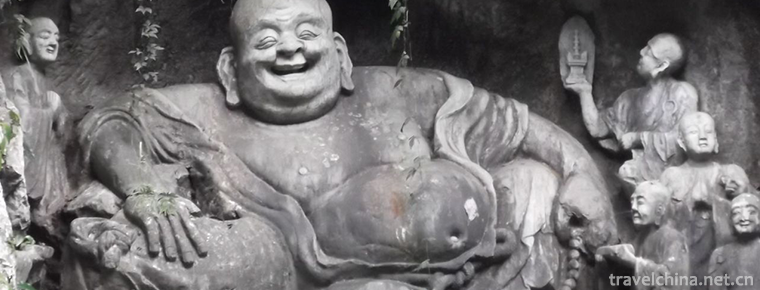
-
The Site of the Ancient Great Wall of the Warring States Period
When people mention the Great Wall, they will think of the Great Wall from Shanhaiguan to Jiayuguan. However, in Xilingol League, there are also the ancient Great Wall, which is not as famous as the G.
Views: 164 Time 2019-03-09 -
Gesar
Gesar (Sr) came into being in the second half of the 17th century and spread among the Mongolian people in Mongolia, Liaoning, Jilin, Heilongjiang, Qinghai, Gansu, Xinjiang and other provinces and reg.
Views: 321 Time 2019-05-01 -
Lantern Opera
Flower lantern opera is a kind of traditional opera widely popular in China. Its prominent feature is that the hands are inseparable from fans and handkerchiefs, singing and dancing.
Views: 289 Time 2019-05-04 -
Grey plastic
Gray plastic gray plastic, known as gray batch in ancient times, is the traditional architectural decoration technology in Lingnan area. The material is mainly lime. .
Views: 346 Time 2019-05-04 -
Production Techniques of Mongolian Lele Car
Lele cart is a cattle cart in Mongolian area, also known as roller cart. Its origin can be traced back to the "Yuan Yuan" recorded in Han Shu. As far back as the Qin and Han Dynasties, the H.
Views: 189 Time 2019-06-03 -
Stone Appreciation Art
In the form of both pictures and texts, Stone Appreciation Art popularizes the knowledge of Stone Appreciation Art to readers, especially young readers..
Views: 142 Time 2019-06-13 -
Tujia Folk Songs
Tujia folk song is a unified folk song composed of lyrics and music. It is the product of the intersection of literature and music. The lyrics of Tujia folk songs belong to the language art, which exp.
Views: 137 Time 2019-06-23 -
Xingyiquan
Xingyiquan, also known as Xingyiquan, is one of the traditional Chinese boxing. Although there are different opinions on its origin, Ji Jike (1602-1680), a native of Puzhou, Shanxi Province, was widel.
Views: 129 Time 2019-07-08 -
Chengdu Medical College
Chengdu Medical College is a full-time general medical college organized by the Sichuan Provincial People's Government. It is located in Chengdu, the capital of Sichuan Province. Its history can be tr.
Views: 144 Time 2019-08-31 -
Sichuan Police College
Sichuan Police College is the only full-time undergraduate college of political, legal and public security in Sichuan Province, which is sponsored by the People's Government of Sichuan Province and jo.
Views: 118 Time 2019-08-31 -
Siguniang Mountain Scenic Area
Siguniangshan scenic area, located in Siguniangshan Town, Xiaojin County, Aba Tibetan and Qiang Autonomous Prefecture, Sichuan Province, belongs to Qionglai mountain range of Qinghai Tibet Plateau, 220 km away from Chengdu..
Views: 149 Time 2020-11-06 -
Yibin medical and health
By the end of 2019, there are 5120 medical and health institutions in Yibin City, including 135 hospitals (102 private hospitals); 4945 primary medical and health institutions, including 177 township health centers, 46 community health service centers (stations),.
Views: 333 Time 2020-12-18

